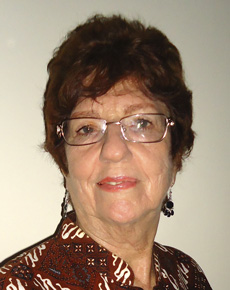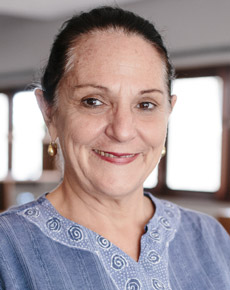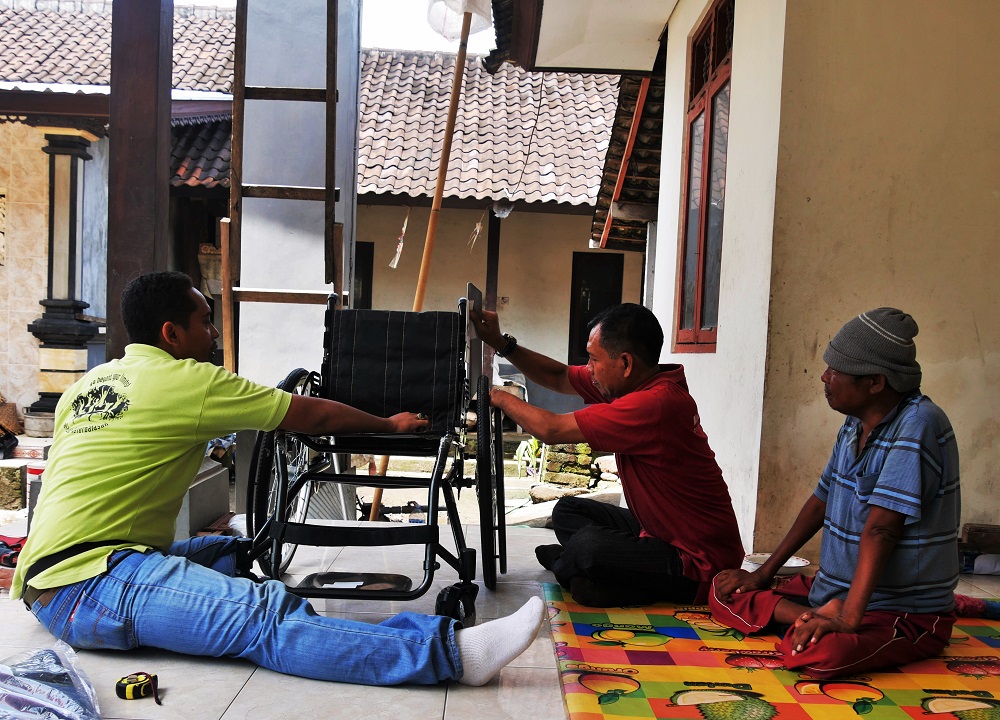History of PUSPADI Bali
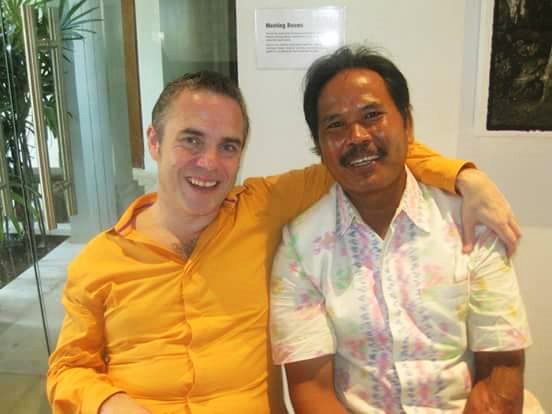
I Nengah Latra founded PUSPADI Bali in 1999 (formerly YAKKUM Bali until 2013) to provide immediate support to people with disabilities from impoverished, remote or inaccessible areas of Bali and East Indonesia.
At 19, Pak Latra experienced a tragic accident when a kerosene lamp exploded during a religious festival in 1986 and covered him in burning fuel, which fused his arm to his torso.
Feeling ashamed, he locked himself away for two years after the accident and avoided human contact.
Later, Pak Latra came into contact with a field worker from YAKKUM Yogyakarta (a non-profit rehabilitation centre in East Java where he received surgery and treatment so he could regain the use of his arm and hand.
He spent the next decade working as a senior manager at YAKKUM Yogya where he saved enough money to return to Bali and begin providing direct support to local people with physical disabilities.
On his return to Bali, Pak Latra bought an old car (which he used as his home, office and ambulance for the next four years) and drove all over the island, searching for people with physical disabilities who were hiding away in their homes.
In those early days, he’d assess their needs and source a wheelchair or mobility aid, such as crutches. Or Pak Latra would assist a local child with a disability who never had an education to go to school.
Since then, PUSPADI Bali has expanded its team and now supports more than 4,900 people with physical disabilities in Bali and East Indonesia.
Background:
Colin McLennan
YAKKUM Yogyakarta was founded by Colin McLennan, a New Zealander, in 1982. Years later, Colin helped Latra start PUSPADI Bali. Janice Mantjika who came to Bali in 1964, has also been a longtime supporter, board member and ambassador of PUSPADI Bali.
Janice Mantjika
Over the years, Latra with the support of Colin and Janice, successfully petitioned for funding and received a grant from the British Embassy and space from Bali’s government. This led to the founding of PUSPADI Bali in 1999.
PUSPADI Bali blossomed through foreign aid until the Bali terror bombings of October 2002, which led to many non-Indonesians to flee the island, including some of the organisation’s key funders.
Rucina Ballinger
In 2003, Mark Weingard, founder of Inspirasia Foundation, connected with Latra through the help of Rucina Ballinger (above: then CEO of YKIP) and a partnership began.
Mark Weingard
Through the support of the foreign community and the Inspirasia Foundation, PUSPADI Bali has already changed the lives of thousands of people with disabilities and their families in Bali, Java and the more remote islands of Lombok, Sumba and Flores in Eastern Indonesia.
Pak Latra and PUSPADI Bali staff (75 per cent of whom have a physical disability) no longer hide their scars and are focused on empowering others with physical disabilities to reach their full potential.
In 2013, YAKKUM Bali decided to change its name to PUSPADI Bali (Pusat Pemberdayaan Disabilitas = Centre for Empowerment of People with Disabilities) to reflect the current and future direction of the organisation.
Timeline
> 1999
PUSPADI Bali’s Director I Nengah Latra establishes the NGO.
> 1999
Outreach program starts in Karangasem, East Bali (later expands to Sumba in 2011, NTT (Atambua) in 2013 and Papua in 2015.

> 2005
With four staff, the NGO begins making prosthetics and mobility aids out of a small workshop in Badung Regency.
> 2005
Partners with the Inspirasia Foundation (IF Founder Mark Weingard).

PUSPADI Bali’s Director I Nengah Latra with Inspirasia Founder Mark Weingard (right) and one of the children the NGO supports (left).
> 2011
Received 89 wheelchairs through a partnership with UCP Wheels for Humanity (now distributes 300 wheelchairs a year).
> 2013
Name change from YAKKUM Bali to PUSPADI Bali to become independent.
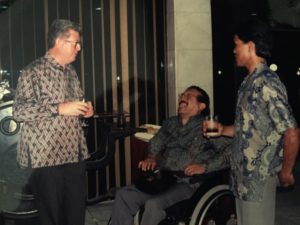
> 2013
Moves into the Annika Linden Centre.
> 2013
Appoints a Board of Directors.
> 2014
Given the title of the best NGO in Bali (from the Social Government, Bali Province). Also named in the top 15 NGOS in Indonesia (by the Social Minister of the Republic of Indonesia).
> 2017
Currently supporting more than 4,850 people with disabilities in Bali and East Indonesia.

